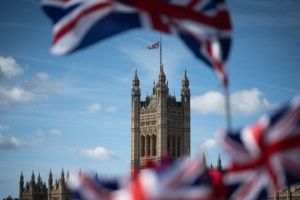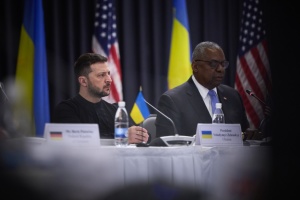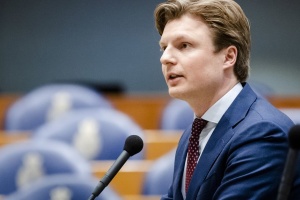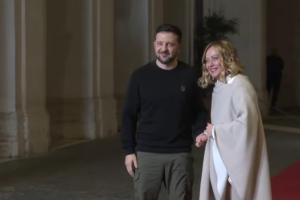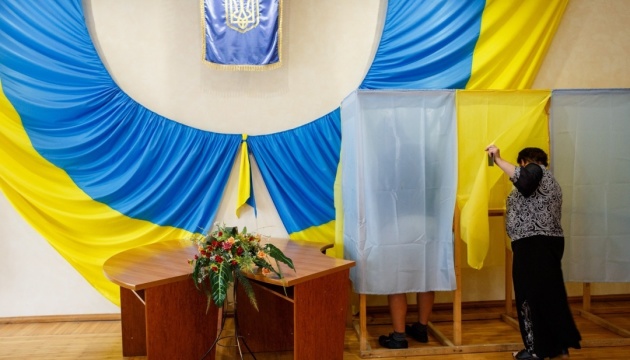
Wartime elections: not in demand and impossible to run
This is the final stage of the special operation Maidan-3, which the enemy has been implementing over the past few months and the total budget of which is $1.5 billion. One of the main information attacks will be directed at the political leadership of Ukraine.
As you know, on March 31, 2024, regular presidential elections would be held in Ukraine. The line in this issue has already been drawn: during a full-scale war, there will be no elections in the state. However, Russian special services are struggling to destroy the legitimacy of the central government in the eyes of citizens to plunge Ukraine into internal chaos and, taking advantage of this, to inflict a military defeat on it in the east.
To this end, the enemy is doing everything possible to make Ukrainians doubt the legitimacy of the central government after May 20, and therefore the legitimacy of its decisions. The manipulative and groundless nature of such messages is obvious, as is the impossibility of holding a nationwide vote in the context of a full-scale war. Therefore, let us once again go through the reasons why the postponement of the presidential election is an expedient and necessary decision.
Democracy instead of imitation
First of all, before the full-scale Russian invasion, elections in Ukraine were held regularly and were an effective tool for the rotation of power. During 1991-2022, the country went through 7 presidential and 8 parliamentary campaigns. None of the presidents, except Leonid Kuchma, was in office for more than one term.
Unlike many post-Soviet states, Ukraine has been fortunate to avoid a long dictatorship and maintain a pluralistic and competitive political environment. Ukraine is a country of established democracy, in which the opposition always has influence and real chances to gain power in elections.
It was the war that forced the electoral processes to pause. Once the threat passes, the country will return to the usual rhythm of political life.
In Russia, the elections long ago turned into a ritual that is in no way able to shake Putin’s dictatorship. Thus, the aggressor state holds “elections” and even arranges them in foreign, but temporarily occupied territories. But the Russian elections are not about the expression of will, but about imitating the unity and cohesion of the subjects around their leader.
Legal basis
Holding elections of the President of Ukraine under martial law is expressly prohibited by Article 19 of the Law on the Legal Regime of Martial Law. Of course, the Parliament has the authority to amend the current legislation, but in this case, there are no grounds for this: according to Article 64 of the Constitution of Ukraine, the electoral rights of citizens are not among those that cannot be limited during martial law or a state of emergency.
Sometimes it is said that it is possible to unblock the legal possibility of holding presidential elections unless the Verkhovna Rada extends martial law. Thus, a “window” will be created for the elections, after which martial law will be extended again. However, the use of such a “life hack” will have catastrophic consequences for the state because the Law on the Legal Regime of Martial Law regulates many more issues and processes directly related to the country’s defence capability. Therefore, suspending its force even for a few weeks will be a generous gift to the enemy.
Thus, the fakes that in spring, the current president of Ukraine “will lose legitimacy” can undoubtedly be interpreted as the work of Russian special services or conscious or unconscious assistance to the enemy.
Comprehensive consensus
In recent months, Russian propaganda has been trying to convince Ukrainians that the postponement of the elections with reference to martial law is a sign of the dictatorship that the current government is supposedly developing. But in fact, the decision was not arbitrary and did not cause resistance at any level of society.
Thus, back in November 2023, the heads of parliamentary factions signed a Memorandum stating the following:
“We have also agreed that the upcoming free and fair national elections (parliamentary, presidential) are held after the end of the war and the end of martial law with a time sufficient to prepare the elections (at least 6 months after the end of martial law) on the basis of the current Electoral Code (…)”
There is agreement among civil society as well. In September 2023, the civic network OPORA issued a corresponding statement, which was joined by more than 100 civil society organizations and movements:
“Elections and full-scale war are incompatible. Holding elections during a full-scale war is extremely dangerous. It can lead to the loss of legitimacy for both the electoral process and elected bodies, potentially undermining the state as a whole. During a full-scale war, a state cannot guarantee an environment where electoral process participants can freely and fully express their views and will, where military and voters abroad can meaningfully participate, and where a competitive and vibrant political environment exists, especially against the backdrop of narrowing rights and freedoms under martial law.”
The vast majority of ordinary Ukrainians do not support the idea of holding elections during the war either. This is confirmed by the results of a nationwide survey conducted by the Kyiv International Institute of Sociology in autumn 2023. Only 16% of respondents said that parliamentary and presidential elections should be held within the terms specified by the Constitution. Instead, 81% of respondents believed that elections should be held after the end of the war, and that now they are inexpedient. Supporters of postponing the elections absolutely prevailed in all regions of Ukraine.
Security restrictions
In accordance with Article 3 of the Constitution of Ukraine, the highest social values are proclaimed to be the human being, his or her life and health, honour and dignity, inviolability and security. However, no one will be able to guarantee citizens’ safety during elections in conditions of war. You do not need to be a military expert to understand that large crowds of people at polling stations can become (and probably will become) a target for the enemy. It is impossible to keep the addresses of tens of thousands of polling stations secret. Similarly, it is not possible to locate all voting sites in premises that can serve as reliable shelters capable of withstanding a drone, ballistic missile, or cannon artillery strike.
Holding elections without polling stations, that is, by home, postal, or electronic voting (or by a combination of these methods) is neither realistic at the moment. Moreover, Ukrainians are extremely sceptical about online elections: during the mentioned Kyiv International Institute of Sociology’s survey, 65% of respondents opposed voting via the Internet. In addition to the risks of falsification pointed out by the survey participants, there is also the danger of hostile cyberattacks. Neither is it clear how to ensure the secrecy of the expression of will because for hypothetical participation in online elections, a citizen will have to verify their identity when authorizing in the corresponding electronic system. The latter also applies to voting by mail.
Thus, the organization of elections that would simultaneously meet the highest democratic standards and security requirements is a challenge that neither Ukraine nor any other country in the world is ready for. Of course, it is possible to hold elections, ignoring the circumstances of wartime, but who will take political, legal and moral responsibility for possible mass casualties?
Justice and money
Equal access of Ukrainian citizens to participate in voting is no less acute. Today, 26% of the territory of Ukraine is under temporary occupation. It is currently impossible to accurately estimate the population in these areas, but it is quite obvious that millions of Ukrainians will not be able to participate in the hypothetical elections. The number of our citizens abroad is estimated by the Institute of Demography and Social Studies of the National Academy of Sciences of Ukraine at 9 million people. No one knows how to organize equal access to foreign polling stations for such a number of people. Similarly, it is impossible to organize equal and unhindered access to polling stations for the soldiers of the Defence Forces who perform tasks directly on the contact line or in close proximity to it. Neglecting the votes of these categories of citizens would be contrary not only to the principles of democracy, but also to the fundamental principles of justice.
In addition, elections require significant budget expenditures. Last year, the Ministry of Finance appealed to the Central Election Commission regarding the estimated costs of holding presidential and parliamentary elections. According to the Commission, presidential elections would cost the state UAH 5.4 billion, and parliamentarian elections—UAH 3.7 billion. No need to explain that today the Ukrainian budget has much higher priority expenditure items related to the financing of the defence sector, as well as support for the most vulnerable categories of the population. It is not difficult to predict that the billions of hryvnias spent on elections, which neither politicians nor society requires, would look unjustified and even immoral.
To sum up, today in Ukraine, there is neither a real demand for holding presidential elections during the war, nor an objective opportunity to organize them in accordance with democratic standards. Russia, trying to create an artificial frenzy around this issue, pursues two goals. At the very least, the enemy is trying to undermine the legitimacy of the central authorities in the eyes of the citizens, and at most —to push Kyiv to hold elections, the results of which will be questionable, and therefore discredit Ukraine in the eyes of its Western partners. But such intentions are doomed to failure.
Center for Strategic Communication and Information Security

